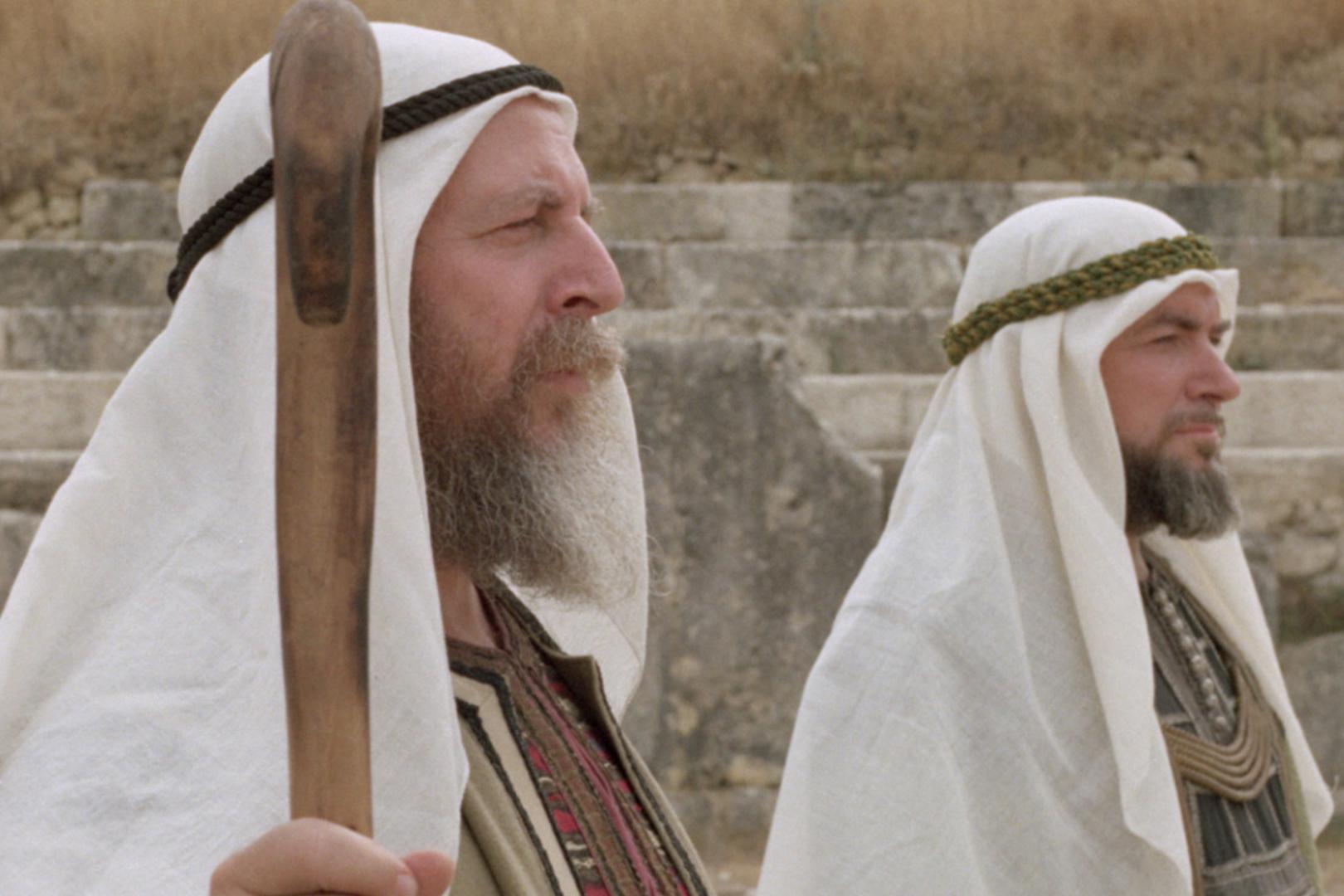Screen/Society--Straub-Huillet Tribute: "Moses and Aaron" (1974)

Film screening:
MOSES AND AARON
(Jean-Marie Straub and Danièle Huillet, 1974, 105 min, Austria/West Germany/France/Italy, Digital)
Preceded by the short film, INTRODUCTION TO ARNOLD SCHOENBERG'S "ACCOMPANIMENT TO A CINEMATOGRAPHIC SCENE" (Jean-Marie Straub and Danièle Huillet, 1972, 15 min, West Germany, Digital)
MOSES AND AARON is a familiar Biblical tale transformed into a cinematic opera of seemingly endless possibility. In expressive, melodic tones, the fraternal pair debate God's true message and intent for His creations, a conflict that leads their followers towards chaos and sin. Set almost entirely within a Roman amphitheater whose history lends every precise line-reading and gesture, every startling camera move and cut, a totalizing force, Straub-Huillet's adaptation of Schoenberg's unfinished opera opens us to the stimulating worldview of a filmmaking duo whose masterful efforts are finally coming to light.
INTRODUCTION TO ARNOLD SCHOENBURG is inspired by a 1923 letter addressed by Arnold Schoenberg to his one-time friend, painter Wassily Kandinsky, in which the Austrian composer reflects on the terrible fate awaiting the European Jews, as well as Bertolt Brecht's 1935 speech to the International Congress in Defense of Culture.
"An immensely moving, even thrilling work. One of the monuments of 20th-century cinematic modernism." - Dave Kehr, The New York Times
"I saw it at Cannes at the time... It was so beautiful, captivating, intelligent - a beauty that doesn't want to be beautiful, and that's how it's achieved." - Chantal Akerman, director of Jeanne Dielman
"A cinema of exhilaration ... As in some Ford films, a tracking shot can make you cry. They are the only films I know in which you can feel the force of gravity." - Thom Andersen, director of Los Angeles Plays Itself
"[The directors'] rarefied aesthetic coheres perfectly with the opera to come off as a kind of 12-tone filmmaking which, like Schoenberg's music, reclaims a classical ideal for a progressive cause that owes nothing to nostalgia. Oblique angles, long takes, and static tableaux allow Straub and Huillet to go straight to the drama inherent in the story and the composition. The stark images are as passionate and engaging, profound and beautiful as the complex music to which they insightfully respond." - Richard Brody, The New Yorker
"The greatest opera film ever made." - P. Adams Sitney







